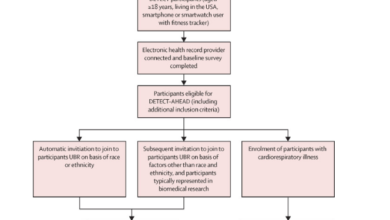“Reconsidering Your Diet: The Impact of Ultra-Processed Foods on Health”

If you’re accustomed to reaching for a bag of chips, Ultra-Processed Foods it might be time to think twice about your dietary choices. A recent study published in The BMJ reveals a concerning link between regular consumption of ultra-processed foods, such as sweets, crisps, and pre-packaged meats, and a staggering 50% increase in the risk of death from cardiovascular disease.
Ultra-Processed Foods
But the implications don’t stop there. The study also establishes a significant correlation between these highly processed foods and a 32% surge in the occurrence of various health conditions, including cancer, type 2 diabetes, cardiovascular issues, gastrointestinal and respiratory problems, as well as mental health concerns like depression and anxiety.
India, in particular, has witnessed explosive growth in its ultra-processed food sector, as highlighted by a report from the World Health Organization in collaboration with the Indian Council for Research on International Economic Relations. The sector experienced a remarkable compound annual growth rate of 13.37% between 2011 and 2021, ranking among the highest globally.
However, the authors of the report caution against this upward trajectory, emphasizing the need for policy interventions to avert an obesity crisis in India akin to what some Western countries are already grappling with.
Clinical dietician G Sushma from CARE Hospitals, Banjara Hills, Hyderabad, attributes this surge in ultra-processed food consumption in India to factors like urbanization, evolving lifestyles, globalization, and market influences, compounded by the time constraints prevalent in modern living.
Ultra-processed foods, characterized by extensive industrial processing and the incorporation of additives, preservatives, and flavorings, encompass familiar items like soft drinks, chips, crackers, instant noodles, sweetened breakfast cereals, and fast food.
The potential harm inflicted by these foods on health is multi-faceted, as explained by Sushma:
a. Nutrient-poor composition: Due to extensive processing and the inclusion of additives, preservatives, and flavorings, ultra-processed foods often lack essential nutrients and fiber.
b. Excessive added sugars and fats: These foods tend to be high in added sugars, unhealthy fats, and salt, contributing to weight gain and various health issues.
c. Lower satiety: Ultra-processed foods may be less satisfying, leading to overconsumption and contributing to obesity.
d. Impact on metabolic health: Studies indicate associations between the consumption of ultra-processed foods and an increased risk of obesity, type 2 diabetes, cardiovascular diseases, and other health problems.
e. Gut microbiota: Some research suggests that these foods may negatively affect the composition of gut microbiota, which plays a crucial role in overall health.
Quitting ultra-processed foods can pave the way for improved overall health, better weight management, and a reduced risk of chronic diseases. Individuals, communities, and policymakers are urged to collaborate in promoting a healthier food environment.
To initiate this journey away from ultra-processed foods, individuals can adopt the following steps:
a. Cook at home: Opt for fresh, whole ingredients to gain better control over food quality.
b. Read labels: Be discerning about food labels, avoiding products with excessive additives, preservatives, and added sugars.
c. Choose whole foods: Prioritize fruits, vegetables, whole grains, lean proteins, and minimally processed foods in your diet.
d. Limit fast food and takeout: Cut back on eating out and opt for healthier alternatives when possible.
e. Educate and raise awareness: Support community initiatives, educational programs, and awareness campaigns to inform people about the health impact of ultra-processed foods.




